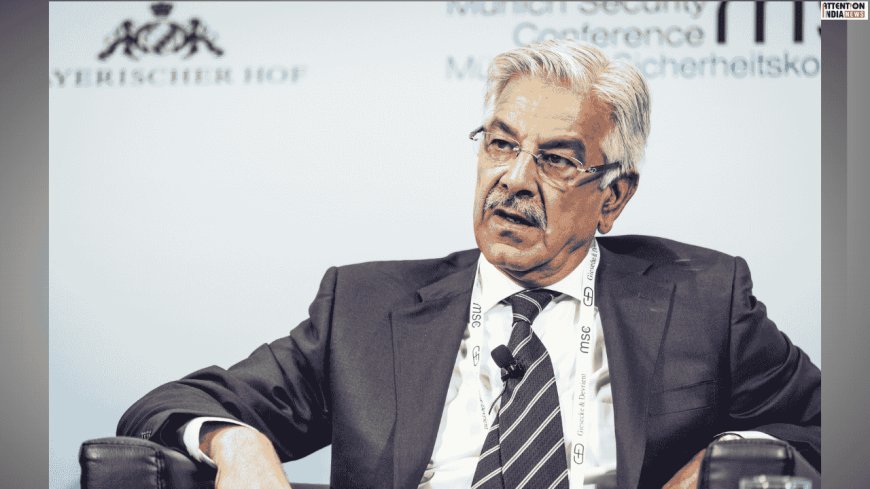Pakistan Warns of “Open War” as Istanbul Talks with Afghanistan Aim to Ease Border Tensions
Pakistan's defence minister Khawaja Muhammad Asif had reportedly warned on Saturday that “no deal” with Afghanistan during current talks underway in Istanbul for resolving a spate of recent fights that could pave the way to an “open war”.

New Delhi (India) October 26: Pakistan’s defence minister said on Saturday that he thought Afghanistan wanted peace but warned that if not then it would face “open war” unleashed from Pakistani territory. Though he added both sides were seeking negotiated settlement as opposed to stepping up conflict with open hostilities.
Asif said, “We have the option, if no agreement takes place, we have an open war with them. But I saw that they want peace.”
Pakistan, a key player in US-backed peace talks for the war-torn neighbouring country, shares 2,400km of border with Afghanistan and has been criticised by its neighbour in the past for mild punitive measures against Pakistan-based militants attacking across their border.
Istanbul Talks Continue
The Istanbul talks, which started on Saturday and were likely to drag into Sunday, represent a fresh effort by Pakistan and Afghanistan to try to forestall a new descent into violence following the worst border fighting since the Taliban seized Kabul in 2021. The negotiations are intended to develop some sort of mechanism to sustain the Doha ceasefire over the longer term.
Ceasefire Holds for Now
There has been no incident reported so far in the four to five days since it was agreed and both sides are following the truce, Khawaja Muhammad Asif said.
On Saturday meetings in Istanbul, negotiators would detail the "mechanisms" for upholding stability agreed at Doha talks, AFP news agency reported. No immediate details were provided on when and where the talks would take place.
Rising Regional Strain
Friday’s visit came after deputy interior minister Haji Najib led an Afghan delegation to Turkey. Pakistan has contributed two security officials to the meeting.
Zabihullah Mujahid, the spokesman for Afghanistan said, "The delegation of the Islamic Emirate, led by the respected Deputy Minister of Interior, Haji Najib, has departed for Turkey following the Doha agreement from a few days ago. Discussions on the remaining issues will take place at this meeting," in a post on X on Friday.
The two sides initially agreed to a cease-fire, but it fell apart within days, with Kabul blaming Islamabad.
A second truce was arranged on Sunday, mediated by Qatar and Turkey, which appears to have stuck.
Taliban’s India Visit
The first explosions in Kabul came as the Afghan foreign minister traveled to India on a rare visit by his Taliban counterpart that fueled the ongoing escalation.
Up until the latest clashes, Pakistan had been instrumental in backing the Taliban, offering strategic support in Afghanistan as a counter to India.
And Pakistan and Afghanistan had seen their ties hit a new low after Pakistani jets bombed Kabul killing TTP hideouts. Pakistan has also blamed Afghanistan of giving shelter to TTP or Pakistani Taliban terrorists, a charge Kabul routinely denies.
Subsequently, Afghanistan launched shelling and killed over 60 Pak Soldiers, kidnapped another 50+ and captured dozens of Pakistani check-posts. But Pakistan did continue to attack Afghanistan along the Durand Line. Among such incidents include an attack in which three Afghan cricketers were killed and then the Taliban government axed a tri-nation series with Pakistan and Sri Lanka.

 Aadrika Tayal
Aadrika Tayal 





